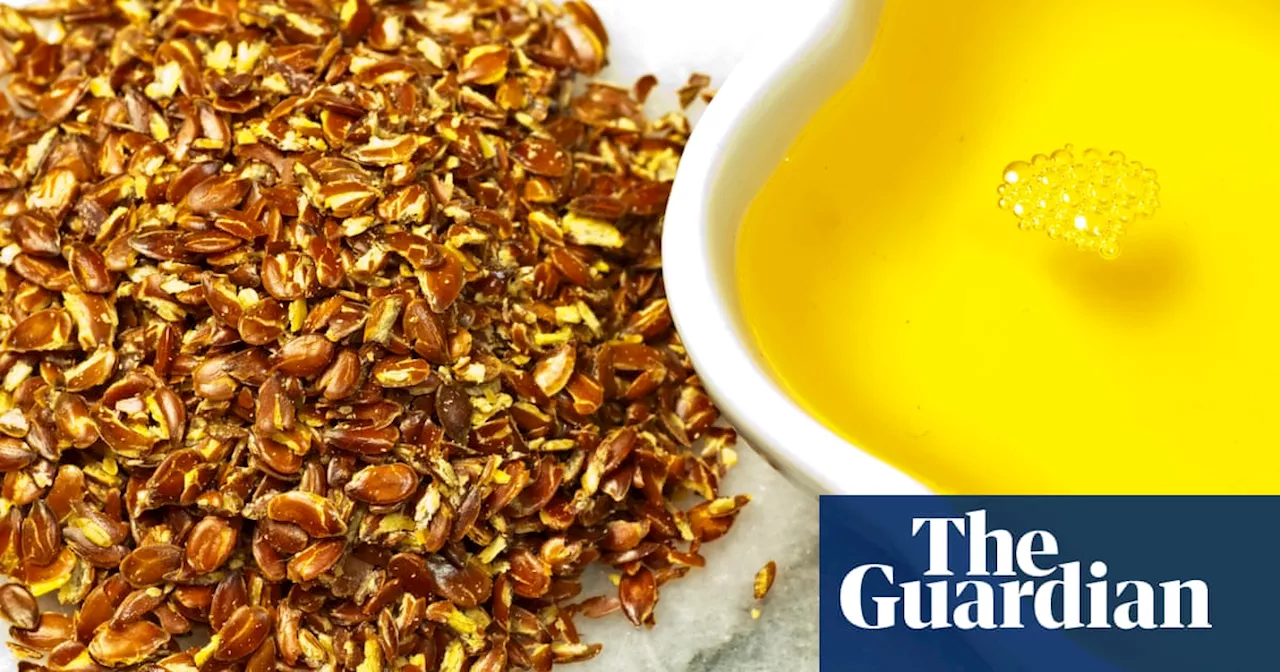This article explores the controversy surrounding seed oils, examining claims they promote inflammation and pose health risks. It cites scientific evidence and expert opinions to debunk these myths, highlighting the essential role of omega-6 fatty acids in the body and the safety of common processing methods.
Like a host of online influencers, the man likely to be the US’s next health secretary has denounced the vegetable oils used in countless foods. The science is not on their side. Seed oils are in many foods. They are usually cheap and easy to cook with, and their inoffensive taste means they can be used in a huge variety of things. Go on any social media platform, though, and you will find self-appointed health influencers blaming them for everything from inflammation to the obesity epidemic.
Politicians do it too: the man Donald Trump wants for his health secretary, Robert F Kennedy Jr, has claimed that Americans are being. To be clear, seed oils are oils extracted from – well, seeds. In the UK, the most common are rapeseed (known in the US as canola oil) and sunflower (both often called vegetable oil), though you will also find soybean, corn, grapeseed, rice bran and safflower in countless products. Sarah Berry, a professor of nutritional sciences at King’s College London and chief scientist at the nutritional science company Zoe, says: “In the UK, the largest contributor of fat in most people’s diets is palm oil, which is often used for deep frying.” That isn’t a seed oil, but, she says: “Nearly all the rest of the oils that we consume come from seeds.” Is that a problem? Well, one of the most common claims online is that seed oils promote inflammation, which – when it occurs excessively – has been linked to, among other things, type 2 diabetes, obesity, cardiovascular disease and cancer. But it is not quite this simple.“The reason seed oils are often believed to be inflammatory is that many have a high amount of omega-6 fatty acids, a type of polyunsaturated fatty acid,” says Berry. Polyunsaturates are split into two main groups – omega-6 and omega-3. Like the omega-3 fatty acids found in fish and nuts, omega-6 produces chemicals in the body known as eicosanoids, but unlike those produced from omega-3, which tend to have anti-inflammatory effects, omega-6s have some inflammatory properties. “However – and this is really important – we know that inflammation is a crucial part of the body’s natural processes,” says Berry. “It’s part of our normal physiological reaction to harm, for example. When you cut yourself, the only reason you heal is because you have an inflammatory reaction.” Problems start if you get too much inflammation in the wrong place and at the wrong time, hence the concern about seed oils. But theory, and even what happens in the lab, don’t seem to account for what goes in our bodies. “There’s overwhelming evidence that seed oils are not inflammatory.”, a type of trial typically considered the gold standard in nutrition and health research, have shown that refined seed oils have no effect on inflammation – and in fact, linoleic acid, which is found in sunflower and grapeseed oils, among others, typically“The idea that we’re going to suffer from inflammation seems to be this mechanistic theory that doesn’t play out in reality,” says Berry. “That’s because our bodies are so clever; what happens in a petri dish or even a mouse isn’t what happens in humans. There have been some good-quality studies done in the UK, for example, that have shown that, as long as you’re getting some omega-3 in your background diet, it doesn’t matter if you’re having a large amount of omega-6.” Another concern of seed-oil sceptics is how the oil is produced. One way to do this is “cold pressing” – basically, squeezing the seeds so the oil comes out. This works fine but isn’t the most efficient option, because a lot of oil stays inside the seed. The food industry has a couple of solutions to this, including heating the seeds or using a solvent – typically followed by bleaching and deodorising to make the oil look and taste better. The most common solvent used in this process, hexane, is also used in paint thinners and as a cleaning agent, and in high doses, it can be acutely toxic – all common talking points among the so-called health influencers. What isn’t usually acknowledged in these conversations, however, is that hexane is later separated from the oil by distillation and evaporation, and remains only in tiny quantities after processing (the EU allows a maximum residual limit of 1 mg per kilo). “The trace amounts of hexane that remain are less than what we are exposed to in everyday air pollution,” says dietitian Avery Zanker. “The bleaching process involves using clay to remove impurities, not household bleach. It reduces some nutrients and antioxidants, but does not pose a chemical risk. Overall, there is no strong evidence that these processes in seed oils pose significant health risks.” Berry says: “From what current evidence there is, I don’t believe that there’s much difference between cooking with refined seed oil and the cold-pressed kin
SEED OILS INFLAMMATION HEALTH RISKS NUTRITION PROCESSING
Australia Latest News, Australia Headlines
Similar News:You can also read news stories similar to this one that we have collected from other news sources.
 Could Seed Oils Be Fueling the Rise in Younger Colon Cancer Cases?A new study suggests a link between the high consumption of seed oils, rich in omega-6 fatty acids, and an increased risk of colon cancer, particularly in younger individuals.
Could Seed Oils Be Fueling the Rise in Younger Colon Cancer Cases?A new study suggests a link between the high consumption of seed oils, rich in omega-6 fatty acids, and an increased risk of colon cancer, particularly in younger individuals.
Read more »
 Seed Oils and Colorectal Cancer: A Potential Link?A new study suggests a connection between the consumption of seed oils, which are high in omega-6 fatty acids, and an increased risk of colorectal cancer. The research found elevated levels of omega-6 fatty acids in tumor samples, while omega-3 fatty acids, known for their anti-inflammatory properties, were lacking.
Seed Oils and Colorectal Cancer: A Potential Link?A new study suggests a connection between the consumption of seed oils, which are high in omega-6 fatty acids, and an increased risk of colorectal cancer. The research found elevated levels of omega-6 fatty acids in tumor samples, while omega-3 fatty acids, known for their anti-inflammatory properties, were lacking.
Read more »
 Could consuming seed oils give you colon cancer?A new study has reignited claims that we are being “poisoned” by seed oils. But should we really be avoiding them?
Could consuming seed oils give you colon cancer?A new study has reignited claims that we are being “poisoned” by seed oils. But should we really be avoiding them?
Read more »
 AFC Playoff Picture Set with Chiefs Clinching Top SeedThe Kansas City Chiefs have clinched the top seed in the AFC playoffs, with the Buffalo Bills, Houston Texans, Baltimore Ravens, Pittsburgh Steelers, and Los Angeles Chargers also securing playoff berths. The final playoff spot is up for grabs between the Denver Broncos, Miami Dolphins, and Cincinnati Bengals.
AFC Playoff Picture Set with Chiefs Clinching Top SeedThe Kansas City Chiefs have clinched the top seed in the AFC playoffs, with the Buffalo Bills, Houston Texans, Baltimore Ravens, Pittsburgh Steelers, and Los Angeles Chargers also securing playoff berths. The final playoff spot is up for grabs between the Denver Broncos, Miami Dolphins, and Cincinnati Bengals.
Read more »
 De Minaur Soars to No.8 Seed at Australian Open Thanks to Marozsan UpsetAlex de Minaur benefits from Fabian Marozsan's shock victory over Andrey Rublev, securing a favorable seeding at the Australian Open.
De Minaur Soars to No.8 Seed at Australian Open Thanks to Marozsan UpsetAlex de Minaur benefits from Fabian Marozsan's shock victory over Andrey Rublev, securing a favorable seeding at the Australian Open.
Read more »
 Alex de Minaur Secures Top-Eight Australian Open SeedAlex de Minaur has been awarded a major boost in his Australian Open title aspirations after securing a top-eight seeding. Andrey Rublev's surprise loss at the Hong Kong Open has propelled de Minaur into eighth place in the ATP rankings, guaranteeing him a favorable path at Melbourne Park. This seeding will shield him from facing any other top-eight players until the quarter-finals, a significant advantage in his quest for a deep run.
Alex de Minaur Secures Top-Eight Australian Open SeedAlex de Minaur has been awarded a major boost in his Australian Open title aspirations after securing a top-eight seeding. Andrey Rublev's surprise loss at the Hong Kong Open has propelled de Minaur into eighth place in the ATP rankings, guaranteeing him a favorable path at Melbourne Park. This seeding will shield him from facing any other top-eight players until the quarter-finals, a significant advantage in his quest for a deep run.
Read more »
